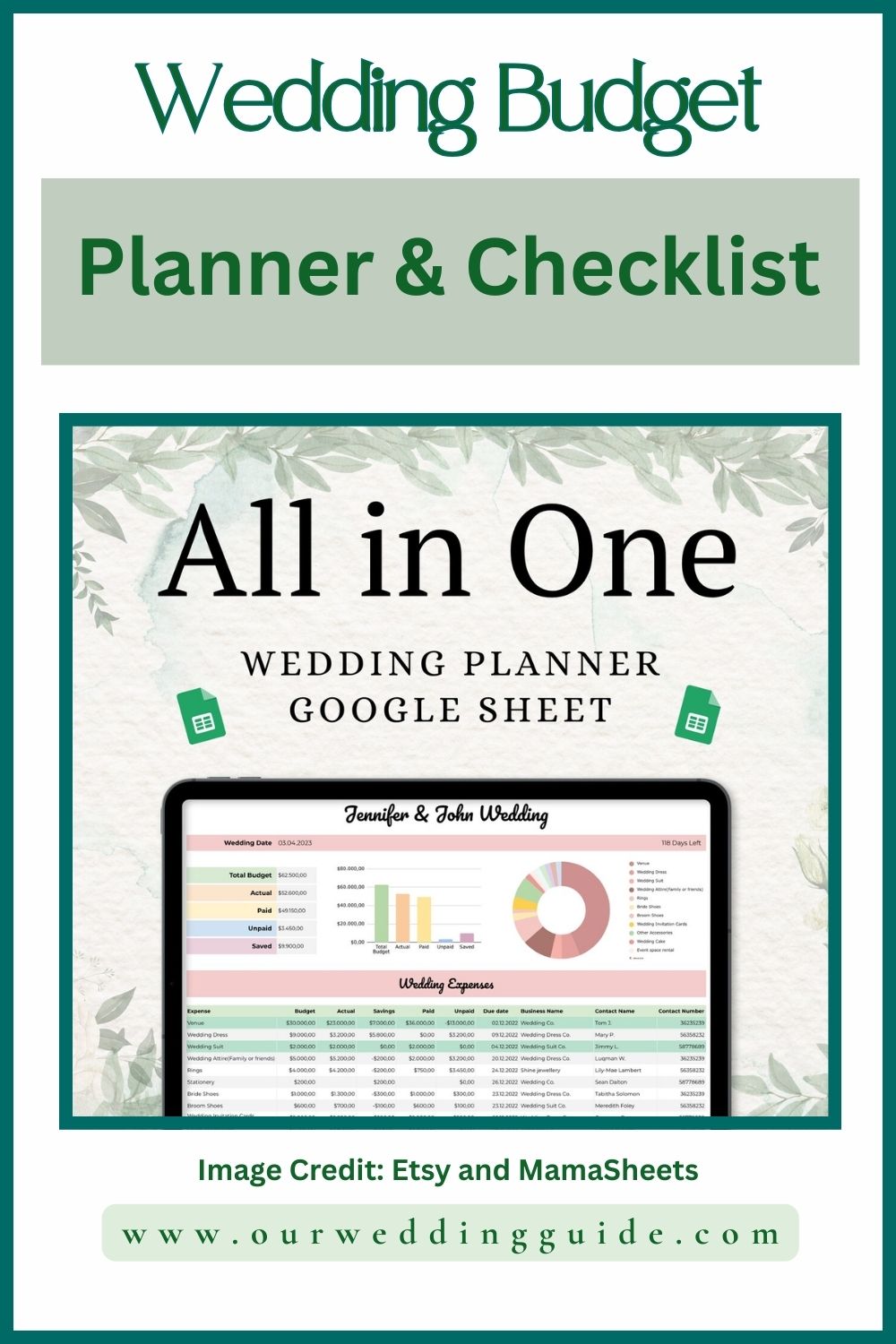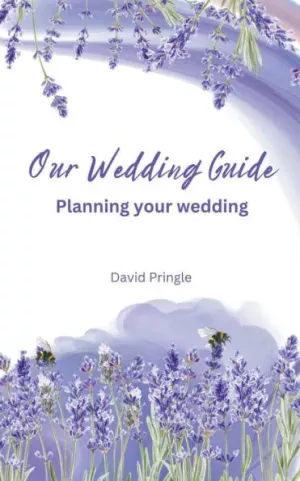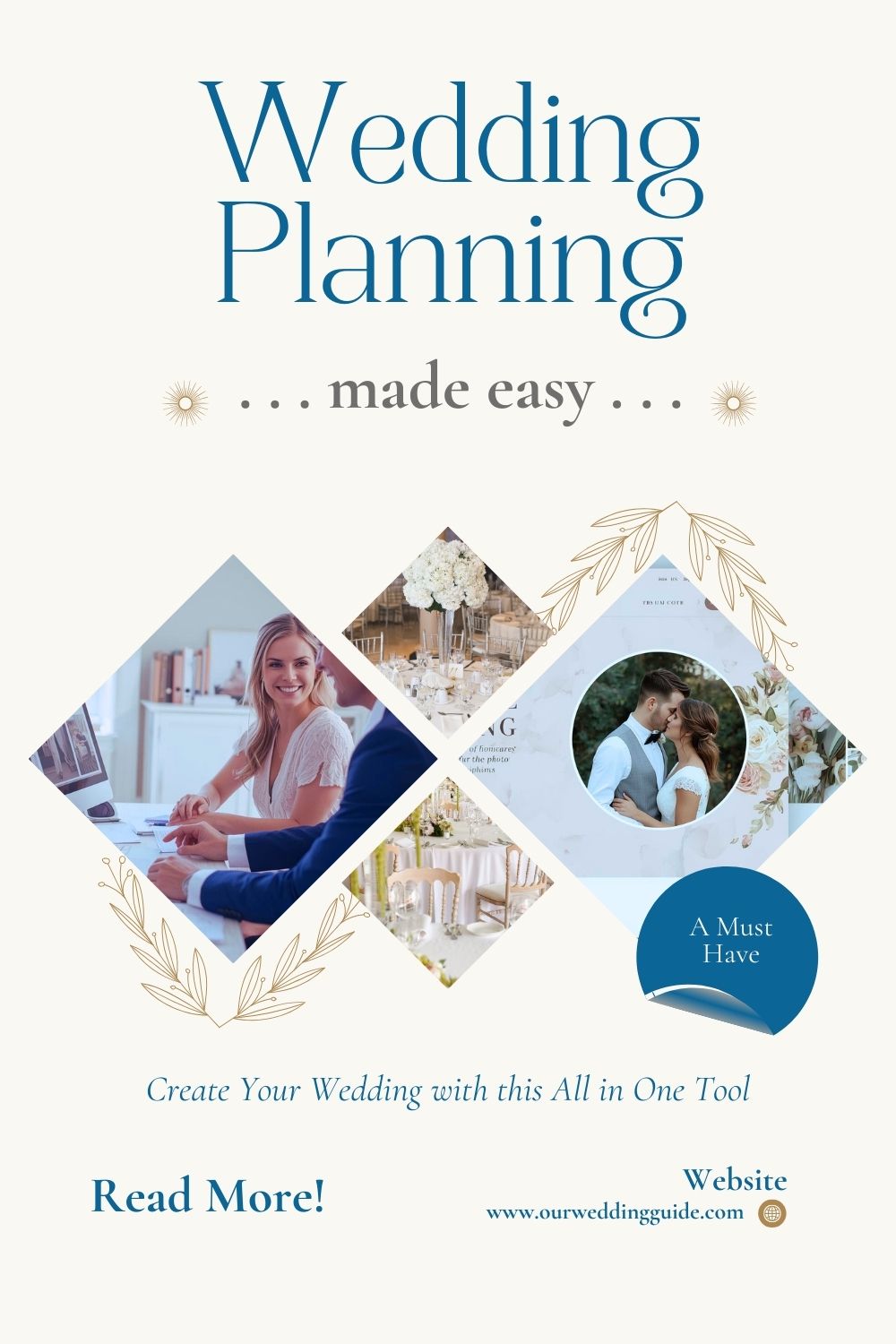If you click on the links we provide, we may receive compensation.
What does a Wedding Cost
Your Wedding Budget
What does a wedding cost? This is a complex question but one that needs to be answered.
Determining the cost of your wedding is a process that can evolve, however, drafting the budget early is essential in making future decisions.
Once your wedding budget is established it will serve as a point of personal reflection. Knowing how costs add up quickly can give one pause, and be motivational in considering options and trade-offs.
The draft budget can also serve as a good tool for conversation with parents if parents are involved. The draft budget can help to determine what elements of the wedding are non-negotiable, and where costs can be trimmed.
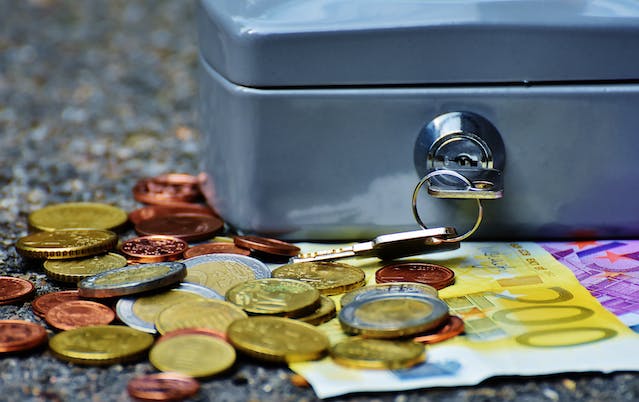
What does a wedding cost
What does a wedding cost? One way to calculate the amount is to determine an amount per guest. This is because a major part of the wedding expense is the reception. Plan on a minimum of $150 per guest.
A small wedding could cost up to $10,000. This includes the venue, flowers, dress, music, reception, and other factors. This would mean that you would have no more than 50 guests and preferably less than 25.
What does a wedding cost if you find a free venue, have afternoon hors d'oeuvres instead of a sit-down dinner, rely on friends for photographs and videography, design your own floral bouquets, and limit wedding attendants? Much less.
Weddings can be well above $30,000 depending on these factors and the number of guests.
Sample budget
The following are cost estimates for a wedding of about 100 guests. Costs will vary depending on each of the following, as well as location.
- $ 200 Invitations (electronic)
- $ 2,000 Wedding attire (Wedding party, rentals, etc.)
- $ 600 Hair, nails, cosmetics, accessories
- $ 1,000 Wedding Planner
- $ 1,000 Rehearsal dinner
- $16,000 Wedding venue and reception (includes catering)
- $ 1,000 Ceremony (Officiant, rehearsal, setup, cleaning)
- $ 3,000 Photography and videography
- $ 1,600 Music for wedding and reception
- $ 2,000 Rings
- $ 1,000 Flowers
- $ 600 Decor, guest favors, etc.
The total amount in this scenario is $ 30,000
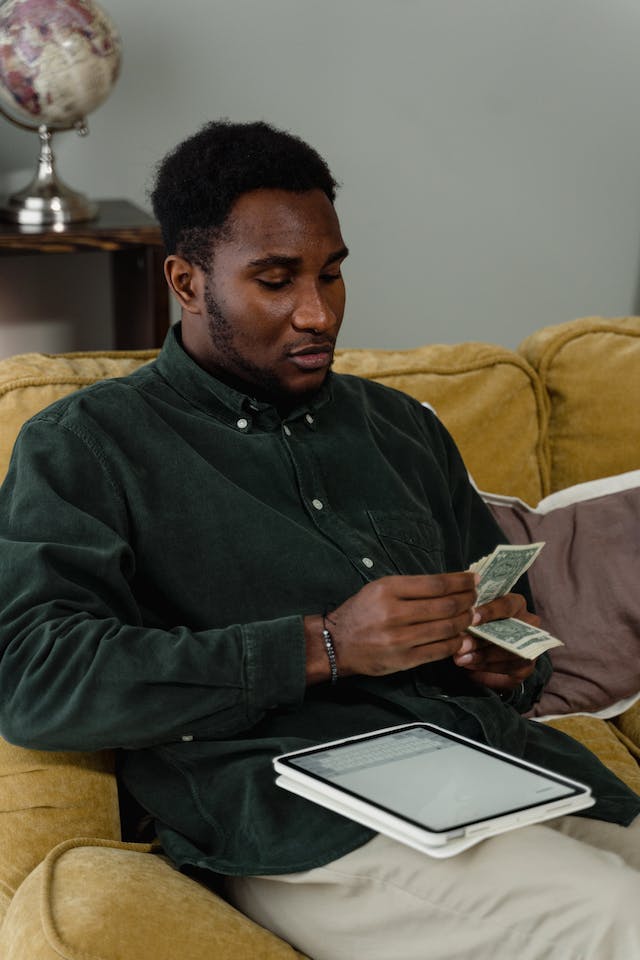
Who pays is a key question in determining your wedding budget
Money brings up many questions. Who is paying for the wedding? Are the costs being shared? Who sets the budget? And, when do you set the budget? Back in the day, things might have been clearer, but perhaps more restrictive. It was traditionally expected that the father and mother of the bride would pay for the wedding.

The Good Old Days . . . Hey dad! or Hey mom!
Today there is an opportunity for various combinations and degrees of contributions in developing the budget that goes into the many, many aspects of a wedding. Traditions can still hold with the bride’s mom and dad funding the wedding, however, more and more, the engaged couple is taking responsibility for a large part of the costs of the many aspects of the wedding.

If the majority of the wedding is paid for by someone else, offering to contribute to the budget is always a statement of courtesy and generosity. It is important to be specific to avoid misunderstanding.
Say something like, “We have set aside $5,000 (or whatever amount you choose), and we would be pleased to contribute as we know weddings are expensive.”
Does living on your own, age, and cohabitation change financial expectations and obligations? I think so. An engaged couple who is well established in their careers, or well into young adult life may have a good source of personal resources. Perhaps the engaged couple has lived independently for a considerable time, or cohabitated for several months or years. These factors change the dynamics of who pays.
Are you in the driver's seat concerning your wedding budget?

If you are paying for everything, things are simplified as you are more in control of your wedding budget and decision- making.
It will be about what you can afford, and how much you want to spend on this one special day. I caution that going into debt for the wedding is a bad idea. Do not max out your credit cards. Commit only to what you can reasonably afford.
The glamor of the wedding day will fade, but the meaning and love that is central and most important will remain. Invest in things that last. That does not mean that you should set aside the things that will make it special and enjoyable. It does mean that you think through the “value for money” that each element of the wedding brings, and what you could have had if you spent the money differently.
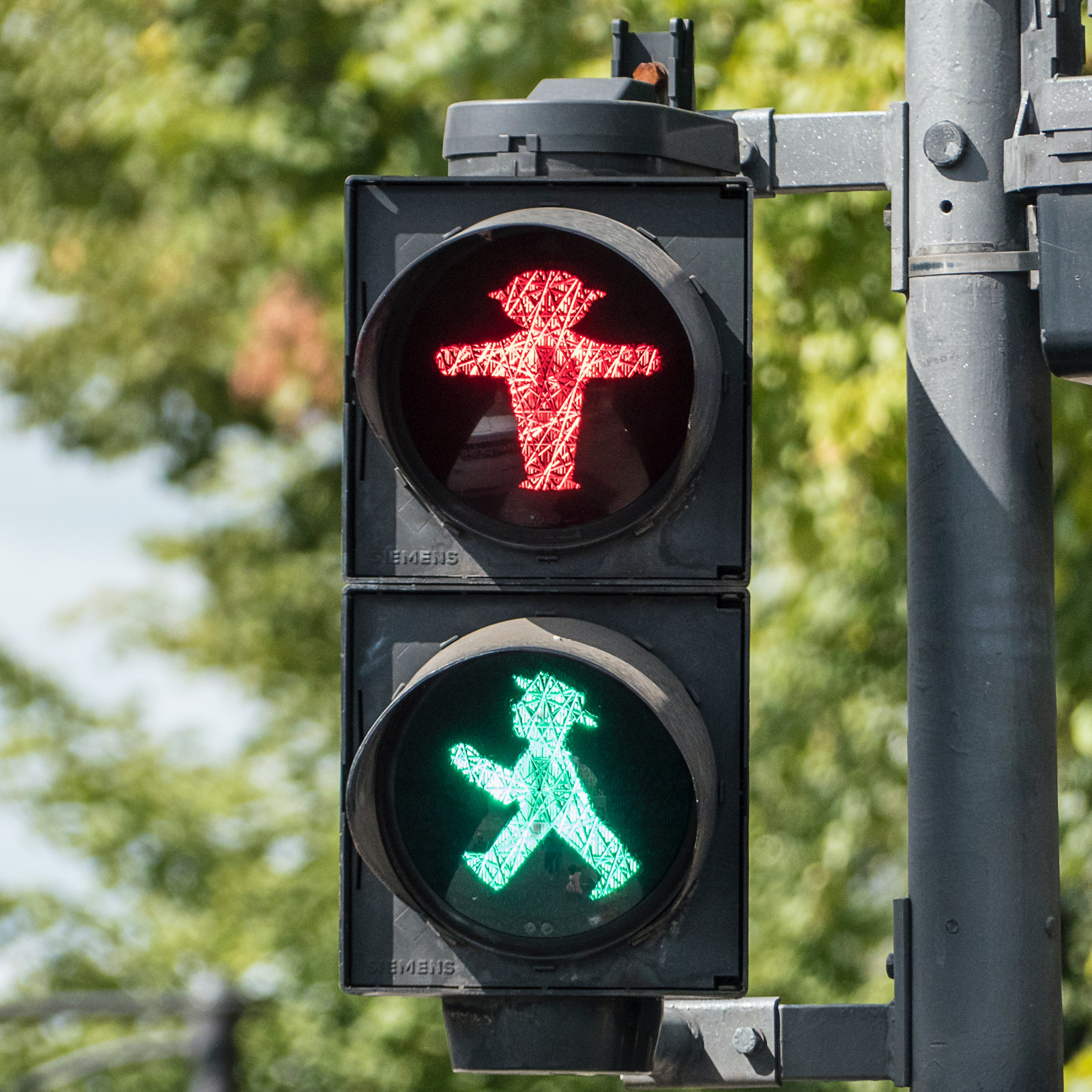
Ready, Set, Go!
As soon as possible, is a good time to start the budget process. It may take some time to work out the details but ample lead time can help in pulling together the required resources.
Keep in mind that at the beginning, the budget is a draft. Once you begin to discover the real costs, the numbers will become fixed. There will be room for trade offs but it will be important to stay within your means or the dictates of the budget.
Click on the link below for budget planner and checklist information and resources.
Your wedding budget and your future
Being fifty years on the other side of a wedding day enables one to see things differently. While our wedding was simple, I know many family and friends who paid what I would consider to be a huge amount of money for their wedding. It comes down to choices, and choices determine our future, and the life we want to live.
While having the wedding of your dreams is important, consider the life you want to live in the future. There are so many resources, YouTube presentations, and financial advisors that provide outstanding financial and investment information. I encourage you to consider taking a look at these resources. If you are young, meaning in your twenties, thirties, and even forties, you can become what I would consider very wealthy by the time you retire. You could probably even retire early if that would be your wish.
What it means is, first, do not go into debt to have the wedding of your dreams. Second, consider taking a few thousand out of your wedding budget and placing it in a well-thought-through investment.
Ten years, twenty years, and even fifty years goes by much faster than you will ever imagine. Down the road, there will be no disappointment and only delight that you chose to invest some of your hard-earned money. Compound interest is an amazing reality. Make exploring your financial options a priority for you and your partner.
Helpful tips for developing your wedding budget
- Talk with the major stakeholders including you, your partner, and your families. Are you willing to make compromises and if so, in what areas?
- Traditions and etiquette can be expensive so determine if these are important to you. It's your wedding. You can rewrite the rules.
- Factors to consider include who pays for the rings, wedding announcements, venue, license, officiant fee, wedding attire, flowers, music, photography and videography, wedding rehearsal and wedding reception, wedding party and guest accommodations and travel expenses, the honeymoon.
Budgeting for a Wedding: A Comprehensive Guide
Planning a wedding is an exciting journey, but without a well-thought-out budget, costs can quickly spiral out of control. Whether you’re planning a small, intimate ceremony or a lavish celebration, understanding estimated costs and financial planning strategies is key to keeping expenses manageable. This guide will help you allocate your wedding budget wisely and avoid financial stress.
Step 1: Determine Your Budget
Before diving into details, establish a realistic overall budget. Consider factors such as personal savings, contributions from family, and any additional funds you may set aside for the big day. The average wedding cost in the U.S. ranges from $20,000 to $40,000, but this number can vary widely based on location, guest count, and personal preferences.
Step 2: Break Down the Costs
A wedding budget typically includes the following key components:
1. Venue and Catering (40-50% of Budget)
- Venue Rental: $3,000 - $15,000
- Catering (per person): $50 - $150
- Bar Service: $15 - $50 per guest
2. Attire and Beauty (5-10% of Budget)
- Wedding Dress: $1,000 - $3,500
- Suit/Tuxedo: $200 - $1,000
- Hair and Makeup: $150 - $500
3. Photography and Videography (10-15% of Budget)
- Photographer: $2,500 - $5,000
- Videographer: $2,000 - $6,000
4. Entertainment (5-10% of Budget)
- DJ: $800 - $2,000
- Live Band: $2,500 - $7,000
5. Decorations and Flowers (5-10% of Budget)
- Flowers: $1,500 - $5,000
- Venue Decorations: $1,000 - $5,000
6. Invitations and Stationery (2-5% of Budget)
- Invitations: $300 - $1,500
- Programs, Place Cards, and Other Paper Goods: $200 - $800
7. Wedding Planner (5-10% of Budget)
- Full-Service Planner: $3,000 - $10,000
- Day-of Coordinator: $800 - $2,500
8. Miscellaneous Costs
- Marriage License: $50 - $200
- Officiant: $200 - $500
- Transportation: $500 - $2,000
- Favors: $300 - $1,000
Step 3: Prioritize Your Expenses
Every couple has different priorities. Some may splurge on photography and cut back on flowers, while others may prioritize an upscale venue over live entertainment. Rank your wedding expenses by importance and adjust the budget accordingly.
Step 4: Consider Ways to Save
- Off-Season Weddings: Hosting your wedding during an off-peak season (winter or weekdays) can significantly reduce venue and vendor costs.
- DIY Elements: Handmade invitations, decorations, or centerpieces can add a personal touch while saving money.
- Guest List Management: A smaller guest count means lower catering and venue costs.
- Bundle Services: Some venues offer packages that include catering, decorations, and even photography, which can be more cost-effective.
Step 5: Track Your Spending
Using a spreadsheet or a wedding budgeting app can help track expenses and ensure you stay within budget. Include an emergency fund of at least 5-10% of your total budget for unexpected costs.
Final Thoughts
Weddings are a significant investment, but with smart budgeting and prioritization, you can have a beautiful and memorable day without financial strain. Start early, plan wisely, and focus on what truly matters to you as a couple!
